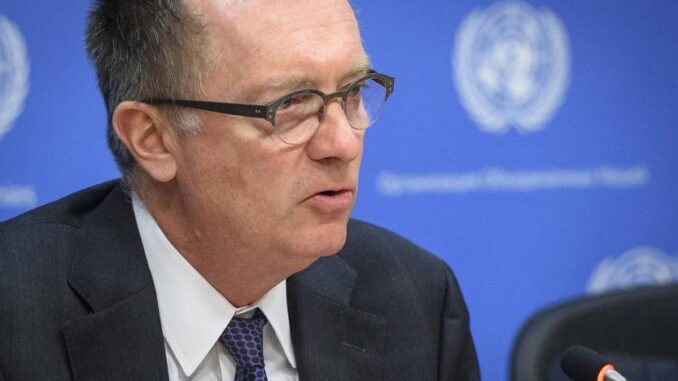
The U.S. president’s special envoy to the Horn of Africa denounced the double talk of the Ethiopians and Eritreans involved in the war in Tigray. He says he is determined to work for a ceasefire. For its part, the European Union denounced the detour of humanitarian aid and threatened those responsible. It is in this increasingly tense diplomatic climate between the United States, Europe and Ethiopia that the U.S. Senate heard Jeffrey Feltman this Monday, May 17.
Jeffrey Feltman’s hearing this Monday night in Washington is an opportunity for Congress to push the Biden administration to take action. Democratic and Republican representatives have agreed to call for sanctions against the Ethiopians and Eritreans responsible for the crimes documented in Tigray.
On Friday, at the end of his mission, Joe Biden’s special envoy warned that he was “concerned about the lack of progress in the fight against terrorism. He said he was “concerned about the growing political and ethnic polarization throughout the country” and described the atrocities committed on the ground as “unacceptable”, as well as the scale of the humanitarian crisis. The State Department called the use of aid to Tigrayans “reprehensible” and called on both Ethiopia and Eritrea to “stop” such practices.
On the European side, the tone is no better. Also on Friday, the European Union said that the blockade of humanitarian aid by military forces was “seriously hampering the ability to reach rural areas, where the crisis is at its worst.
The use of aid as a weapon of war is a serious violation of international law,” wrote the High Representative for External Affairs, Josep Borrel, and the Commissioner for Crisis Management, Janez Lenarčič. Both had warned those responsible that they will be “held accountable.”
